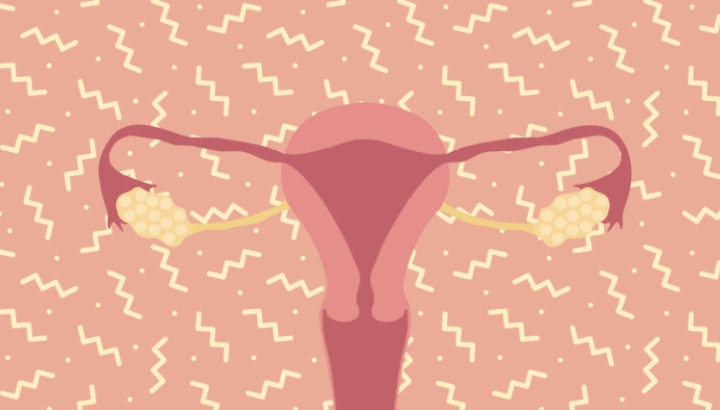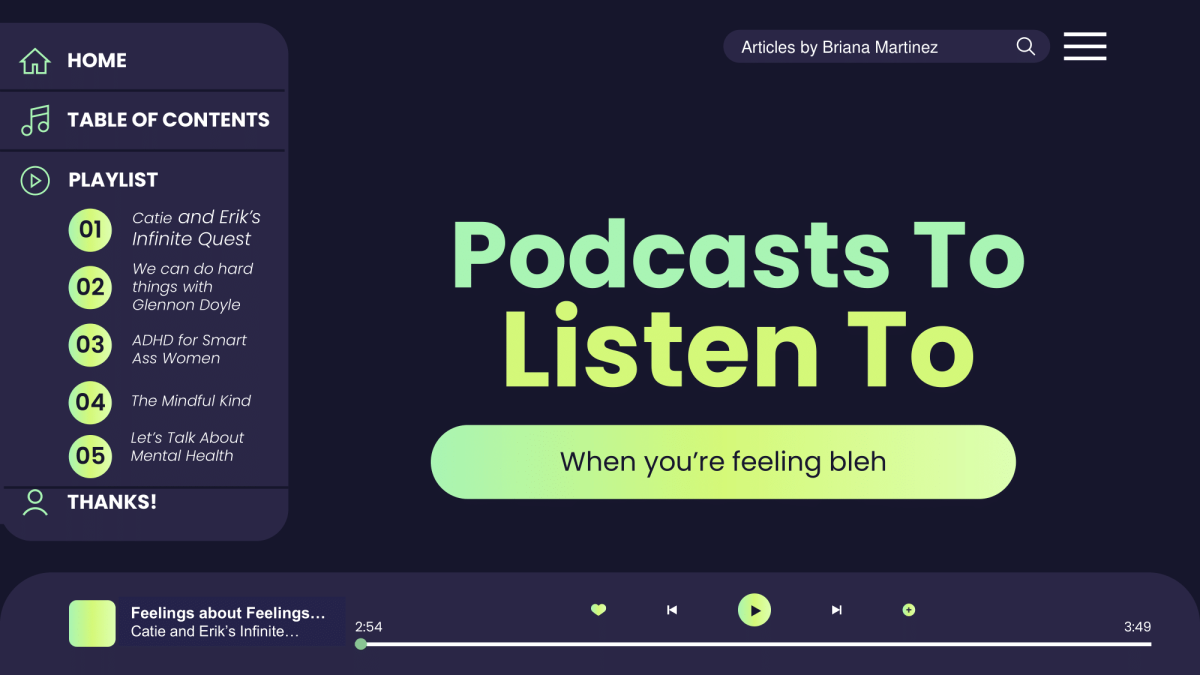If you’re a woman, you’ve probably experienced a lot of moments in life that angered you. You say the word “vagina” and people cringe as if you said a bad word. Anytime you show “too much” emotion, some snarky male will ask you if you’re on your period. You say you’ve lost your virginity and suddenly you’re a “sl*t” to the world while, if you lost virginity to a male, the guy is high-fiving his bros.
Well I think it’s about damn time that women’s sexuality is a part of the mainstream conversation. We have healthcare needs just as much as the next person, if not more. Unfortunately, women’s health is not talked about NEARLY enough and there are many facts that women are in the dark about.
Yes, you are late but no, you’re probably not pregnant.
Contrary to what most health websites will tell you, sexual activity can throw off your hormones and affect your period. If you used protection (birth control, condoms, IUD, etc.), DON’T PANIC if your period is a day or two late. This is especially applicable after your first time having penetrative sex. Do not panic and do NOT Google it. You will go down a very dangerous rabbit hole. However, if the days keep coming and coming and you still don’t get your period, be sure to take a pregnancy test or visit your gynecologist.
YOU CAN GET PREGNANT WHILE YOU’RE ON YOUR PERIOD

I’m not entirely sure where the “can’t get pregnant on your period” rumor came from, but it is completely untrue. Yes, it is true that it is more difficult to become pregnant while menstruating but pregnancy is still possible. Sperm can live inside you for 2-5 days so, depending on your cycle, you can conceive 4-5 days later due to early ovulation. Again, it’s unlikely but use protection to be extra safe.
Queer women’s health is often left out of the conversation

The unfortunate truth about society is that queer women are often left out of the sexual health conversation. In fact, queer women are 5%-18% less likely to be screened for STIs because of a perceived “lack of risk.” This is, of course, ridiculous because STIs can be spread through contact of mucous membranes or affected skin. Women’s sexual health needs more attention and this is especially important for queer women.
For queer women- You can look for an LGBTQ+ friendly healthcare professional here. Planned Parenthood, the Kind Clinic, and Q Austin also offer LGBTQ services. Dental dams and finger cots are some cheap options for having safe sex.
Always pee after sexual activity
Hopefully, you’ve heard this at least once in your life. I used to think it was an urban legend but there’s actually truth to it. Urinary tract infections are common when foreign objects, such as penises or sex toys, enter the vagina. Anything coming into the vagina can bring in bacteria so when in doubt, pee it out.
Plan B is less effective if you’re over a certain weight
If you’ve seen Aidy Bryant’s show on Hulu, “Shrill,” you’ve seen her freak out when her taking of the Plan B emergency contraceptive pill doesn’t work and she ends up pregnant. Research shows that there is truth to this scene. Several studies have shown that Plan B is less effective for women that weigh over 165-175 pounds. The results from the studies suggest that the more you weigh, the less effective the pill is. However, even though there is evidence of this finding, the Food and Drug Administration doesn’t have a large warning label about this risk nor is there anything regarding it on Plan B’s website. The research is ongoing but if you’re worried that Plan B won’t be as effective for you, take it anyway and have a talk with your doctor.
Female condoms: they sound interesting but are actually not as effective as they sound when it comes to preventing pregnancy.
Female condoms, also known as “internal condoms,” are inserted inside the vagina before sexual activity. They are often used when people are allergic to latex (they’re made out of polyurethane or nitrile) or when couples don’t want to interrupt their foreplay for putting on a male condom. Although this nifty little birth control is nice for pre-sex, they can actually be very finicky when it comes time to actually have sex. When used correctly, 5 out of every 100 women will get pregnant as opposed to the 2 out of 100 women that get pregnant from using male condoms. I’ve also heard from several friends that these condoms are prone to slipping or breaking. Unless you have a good reason, it’s probably better to just stick with male condoms.
Be cautious of birth control deliveries

Having birth control delivered straight to your house sounds much better than having to go through the hassle of picking it up. However, if your birth control is delivered to your front door in the middle of a hot Texas day, it can alter the effectiveness of your pills. Birth control is the same as any medication: exposing it to the elements can affect how well they work. If you’re getting birth control delivered to you, be sure to you’re home to pick it up and bring it inside to more stable temperatures. Avoid exposing your pills to extreme heat and direct sunlight.
PCOS & Endometriosis are more common than you think

Polycystic ovary syndrome (PCOS) affects more than 200,000 women in the U.S. Endometriosis affects the same amount of women. Since there are over 400,000 combined cases, why haven’t we heard more about them? (*Cough cough* The patriarchy.)
On a serious note, if you think you are experiencing the symptoms of either of these conditions, speak to a healthcare professional immediately and seek treatment. You deserve to be helped, girl.
Common symptoms for PCOS:
Irregular/lack of periods, difficulty getting pregnant, excessive hair growth (especially on the face, chest, back or buttocks), weight gain, hair thinning/loss, consistent oily skin/acne
Common symptoms for endometriosis:
Extremely painful periods, pain with intercourse, pain with bowel movements or urination, infertility, excessive bleeding, constant diarrhea/constipation while on your period
Always warm-up before penetrative sex

Foreplay is nice. We know this. However, foreplay is important for other reasons besides simply feeling good. “Warming up” before sex creates lubrication in the vagina that will help make intercourse smoother and more comfortable. Foreplay also gets your vagina in the mood along with you. The more into it you are, the more open your vagina gets. Once you’re ready, your vagina will be in a more relaxed state and ready for…a meet-up, for lack of a better term.
Vaginas are meant to smell like vaginas
Don’t be self-conscious if your flower doesn’t smell like a flower. Vaginas are meant to smell natural. Several studies have shown that pH balancing washes, such as Summer’s Eve, can be damaging to your vagina’s health. The healthy pH level of your vagina should be 3.5-4.5 so that she can prevent bad bacteria from thriving. Using washes inside your vagina can throw off this balance. However, your vulva does need to be cleaned. The best way to take care of your vagina is to use warm water to clean the vulva or sensitive skin washes/cleansing cloths if you want to moisturize/freshen up down there. Here are a few washes that are OB-GYN-approved.
Resource Center:
- Q Austin- http://theqaustin.org/
- Offers lots of free resources (free condoms, STI testing, etc.), offers payment plans, can give recommendations to the Kind Clinic
- The Kind Clinic- https://kindclinic.org/
- A sexual health clinic dedicated to the treatment and prevention of STIs including access to the HIV prevention drugs PrEP and PEP
- Planned Parenthood- https://www.plannedparenthood.org/
- A health care provider, educator, and advocate, they deliver sexual and reproductive health care, sex education, and information
- UT Health Services- https://healthyhorns.utexas.edu/womenshealth.html
- Offers multiple STI testings (cost dependent on what tests you get done and whether or not you have insurance), lots of women’s health including but not limited to routine annual wellness exams (breast exams, pap smears, STI testing, etc.) and contraceptive advice, prescriptions and admins




































